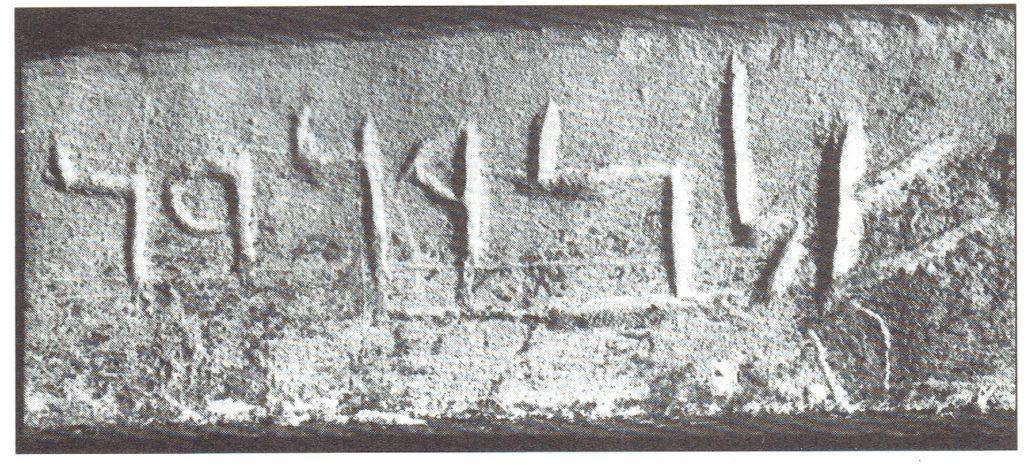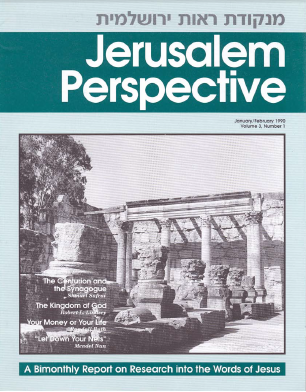Question that was published in the “Readers’ Perspective” column of Jerusalem Perspective 24 (Jan.-Feb. 1990): 2, 14.
The New Testament mentions individuals who belonged to this or that tribe. Did Jews in the first century know their tribal affiliation, and did it affect people’s daily life in any way?
Shmuel Safrai responds:
Many Jews in the time of Jesus had preserved the tradition about which tribe they belonged to. For instance, note the inscription שלבידוד (she⋅le⋅VE da⋅VID, belonging to the house of David) on the ossuary of one הלל or דלל (hi⋅LEL, or da⋅LAL, the reading is not certain). This ossuary, containing the bones of a male of approximately twenty years of age, was found in a rock-hewn tomb at Giv’at Hamivtar in Jerusalem in 1971. People were buried in this tomb for some 150 years, until 70 C.E.
There are many other examples of Jews from the first century who were concerned with their tribal ancestry. Ta’anit 4:5 in the Mishnah preserves a list of the families that brought the wood offering to the Temple:
The wood offering of the priests and the people was brought nine times in the year: on the first of Nisan by the family of Arah of the tribe of Judah; on the twentieth of Tammuz by the family of David of the tribe of Judah; on the fifth of Ab by the family of Parosh of the tribe of Judah; on the seventh of the same month by the family of Jonadab the son of Rechab; on the tenth by the family of Senaah of the tribe of Benjamin….
Rabbi Zadok, whose life spanned the destruction of the Temple, was also concerned to indicate his tribal affiliation. He is quoted as saying, “I am a descendant of the sons of Senaah the son of Benjamin” (Tosefta, Ta’anit 4:6).
Except for priests and Levites, tribal affiliation did not affect daily life, although many people considered their lineage to be significant. Lineage was especially important to those who traced their ancestry to David, since from his descendants the Messiah was to be born.
Note that the ancestry of Jesus of Nazareth is given in great detail in the New Testament, and it is emphasized that Jesus was of the house of David (Matt 1:1; Luke 2:4). Jesus also was sometimes addressed by the common people as “Jesus, son of David,” for example in Luke 18:38-39. Because of messianic hopes, throughout Jewish history and until today a relationship to the house of David has been important.




![Shmuel Safrai [1919-2003]](https://www.jerusalemperspective.com/wp-content/uploads/userphoto/20.jpg)




























































































